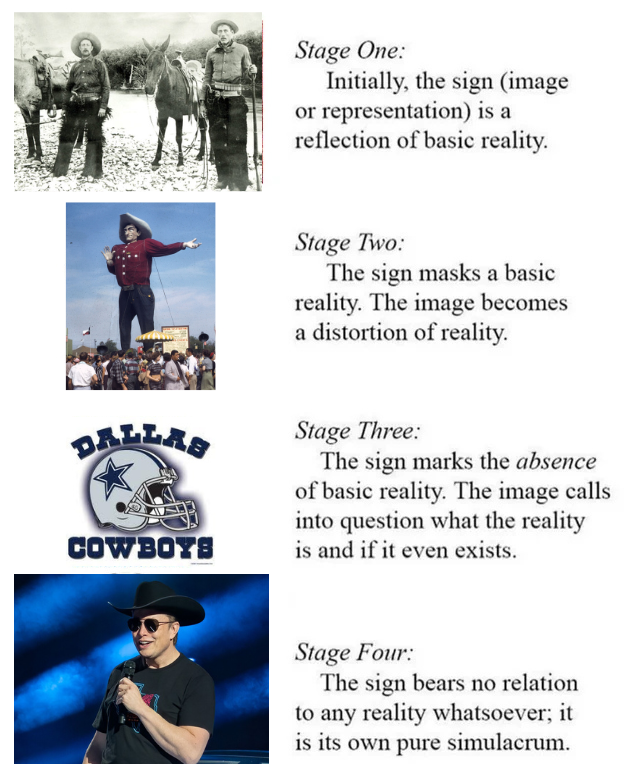
Oxford’s Identity Politics and JCR BAME Officers: Effective in raising awareness, or an exploitation of ‘emotional labour’?
PART I: The Difficulties of Anti-Racism within the Framework of Oxford Bureaucracy
The Junior Common Room (JCR) Committee, akin to an undergraduate student council within each college, essentially upholds the role of overseeing student welfare, representing their views, and voicing their concerns. The University of Oxford currently has 33 colleges accepting undergraduate students, and 32 (with the exception of Wycliffe Hall) which have a JCR and a respective committee that governs it. As of February 2022, all 32 of these colleges have finally appointed at least one official student representative within the JCR Committee to specifically campaign for ethnic and religious minorities. Even in the case of Wycliffe Hall, with one of the smallest undergraduate intakes throughout the university, there is still an officially elected Ethnic Minorities Officer on the committee of their Upper Common Room.
While BAME representation at colleges has certainly evolved at different paces over the years, this role happens to be a relatively new phenomenon amongst many Oxford JCRs. It was only as recent as January 2022, for example, when Regent’s Park College had a student finally step up to take on the role. Prior to this, the college did not yet have a specific student BAME Officer. In Michaelmas 2021, their JCR Social Equalities Officer Eliott Rose, as a white man, had to outsource committee members from the Student Union’s Campaign for Racial Awareness and Equality (CRAE) to conduct the compulsory racial awareness talks for Fresher’s Week instead.
Instances like this outsourcing can make us question the necessity of such roles within college JCRs, begging the question of whether the position is genuinely helpful in raising awareness and increasing access within undergraduate populations, or if it is merely placing an additional burden onto students of colour. These students may instead be taking up the role for fear that it will go unfulfilled in their college communities, where minority students can feel isolated as is.
When ‘diversity’ is measured by pure visibility, one can easily argue that many students of colour have been able to attain prominent, influential positions, and institutions like the Student Union (SU), Oxford Union, and political groups like the Oxford University Conservative Association and Oxford University Labour Club all continue to see participation increasingly more diverse than the stereotypes of ‘privileged straight white men’. Yet, representation merely in the form of visibility, coupled with deeply-ingrained systemic issues that these institutions continue to retain, have proven how the current trajectory of identity politics has made it possible for people of colour and other marginalised groups to constantly be seen, yet still often silenced into submission.
Identity politics is a difficult route to navigate – and student bodies are no doubt often a microcosm of structural inequalities that prevail elsewhere. Oxford JCRs are no exception. With the labels of BAME (Black, Asian Minority Ethnic), and POC (People of Colour) also often widely debated, and a multitude of names being adopted by different colleges for the same role – such as the ERM Rep (Ethnic and Religious Minorities), RAEM Officer (Racial and Ethnic Minorities), BAME Rep, Equalities and Diversity Officer, etc., such discrepancies can also sometimes pose as an additional barrier. To many, furthermore, the role of such reps within college JCRs seems like a performative opportunity for students to be tokenised and exploited for their visibility, instead of concrete suggestions for change.
The past decade has undoubtedly seen an increasing number of colleges adopt more inclusive initiatives, from only 12 colleges in 2015 having a specific JCR role meant for POC, to all 33 undergraduate colleges today officially having such a role. While many have not been openly opposed to the idea, several exceptions remain. In 2016, for example, Oriel had voted against the introduction of such a role, and in the same year, Christ Church proposed a motion to abolish the role due to concerns from ethnic minority students themselves. ‘To achieve our shared aim of quashing racism in Oxford, a traditional ‘rep’ is not the most efficient way to achieve this, and that it is crucial that attention be focused on initiatives like access to ensure that more minorities apply to Oxford,’ an anonymous student was quoted in the article. The motion eventually failed to pass, though many whisperings of Christ Church and its scandals remain a staple of student gossip.
In June 2020, for example, Melanie Onovo spoke up against racist behaviour that took place during the Christ Church JCR hustings. This resulted in both widespread uproar and intense harassment against Melanie. Similarly, the following year, Christ Church student Gracie Oddie-James was racially harassed, but was eventually denied full transparency by the college and accountability when following up with the consequences of her abusers’ behaviour. Gracie eventually went on to assume the position of her JCR’s ERM Rep with another student, Shiv Patel, a few months later, but cites that her brief experience of the role mainly felt performative and tokenistic, and that ‘the college often didn’t really care about what I had to say.’
Arguably, this redirects us again to the many caveats of identity politics, where broad and generalised terms like ‘Diversity’ and ‘BAME’ have allowed institutions to get away with liberally plastering on the labels of ‘access and inclusion’ without taking full accountability on what access would actually entail. In June 2020 for example, Oriel College passed a JCR motion to enact a ‘Tutor for Race’ and a ‘BAME Welfare Dean’ specifically to support ethnic minority students, yet when the college did eventually create this new role, they appointed another white male academic for the position of ‘Tutor for Equalities, Diversity and Inclusion’, instead.
Even in the case of Regent’s Park College which had elected their JCR officer very recently this January, the position was cited as ‘optional’ in an email circulated to members of the undergraduate body. The optional, instead of obligatory nature of the role, was pointed out ‘to reduce expectations on students,’ – signalling how colleges are indeed aware of how emotionally damaging it can be for students who choose to undertake the responsibility. When not adequately supported by their community and those within positions of authority, it can very much result in these representatives being exploited in a way most colloquially known as ‘emotional labour’.
‘People tend to label a lot of things as “emotional labour,” and I’m not really fond of the term because I think it can be over-used to simplify things,’ says Rhiannon*, a former JCR BAME Officer at their college. ‘It would be a lot more effective when you describe it as it is, being clear about how, “this is the work I have had to do, and these are the consequences that it has had on me in a personal capacity”’ they continue.
Rhiannon further explains how Oxford’s problem with the way college and university bureaucracy is structured has led to student initiatives often requiring a large team of people consistently involved for effective change to take place. They cite how students often have no choice but to ‘sacrifice their ideals for the sake of practicality,’ because ‘being too ambitious can be damaging.’
‘Colleges and university bureaucracy as a whole often make you feel like you aren’t doing enough, when in fact, a lot of the reasons why these initiatives fail to succeed is due to their own incompetence, not the students,’ they continue.
‘Our terms are so short and intense, and everyone has a lot on their plate. Although many students and staff initially participate with well-meaning intentions, it usually ends up with just one or two people on the team who end up taking on most of the labour. Yet, these jobs still need to be done, and because there is barely anyone else to do it, that’s how it becomes so easy to burn out when you choose to get involved,’ they emphasise.
Another student adds how, ‘when we talk about “emotional labour,” I think it would be a lot more effective when we clarify that:“I am not being compensated for this whatsoever. Although I am a volunteer doing a job that isn’t paid, shouldn’t someone with much more experience, stability and maturity, who has more time for the cause, be able to do it instead?”’
Similarly, a former JCR Committee member, Valerie*, cited how frustrations with college bureaucracy and the lack of constant, proactive support from the rest of the committee eventually made her decide to abruptly resign due to the emotional toll it had taken on her. ‘I took on the role as a fresher in Hilary of 2020, and then the whole George Floyd situation and wave of BLM protests happened shortly after. Yet, for once, it finally felt like my presence was finally acknowledged on JCR. Prior, I felt like the role of the Ethnic Minorities Officer had little to no significance within the college, and that it was purely tokenistic,’ she says.
‘I felt very self-conscious even assuming the role in the first place, because my year group is overwhelmingly a lot more ‘white’ than other year groups I’ve noticed. Throughout my second year, many on the committee with me were privileged white people who were not very aggressively political in the way that I was, and still am, and I think the lack of proactive support was also what made it difficult,’ she continues.
She adds how, ‘when the events from Trinity 2020 onwards began to unfold, I was unexpectedly thrown into the deep end. My college was heavily involved with the whole Rhodes debacle and we were put under heavy scrutiny by the rest of the university and the nationwide press. It was a lot to handle. By Michaelmas 2020, alongside having to deal with my own unexpected health problems, I was already incredibly burnt out. Myself and several other members of the committee were also frustrated that the college refused to let us hold a compulsory racial awareness workshop (unlike the sexual consent workshops that Freshers are required to attend), or even other initiatives under the Equalities Committee throughout Freshers Week. I feel like we were only demanding the bare minimum, but the college’s argument was that “having compulsory discussions on important, sensitive issues like this is not the most effective way to proceed.” I brought this up at one of the CRAE BAME Rep Conventions, and the SU were incredibly supportive, but none of the plans to help mitigate eventually materialised, due to the fact that I had resigned from the role and no longer had the capacity to follow through.’
Valerie emphasises how the many difficulties with endless layers of bureaucracy within student representative bodies like the JCR and the SU, alongside the lack of standardisation of complaint procedures, only serve to highlight how genuinely helpful initiatives can often result in poor execution. Furthermore, Oxford’s collegiate system only serves to further this discrepancy, amplifying the structural inequalities between different colleges.
Between colleges, an accurate description of what this role entails, how many people are to undertake the role, alongside how much training and support that these students receive, remains an enigma. While several have only one student elected for each role, others have a much larger ‘Diversity and Equalities Subcommittee’ within their colleges, some even having a separate role meant for religious minorities instead. St Peter’s JCR, for example, currently has 3 roles meant specifically for BAME Students, while colleges like Brasenose, Mansfield, and St Benet’s, have separate roles for Ethnic Minorities and Faith/Religious Representatives. Colleges such as Wadham, Lincoln, Queen’s and University, also have at least two students undertaking the role, and Oriel has also recently decided to introduce an additional Officer as of Hilary Term 2022.
When asked if they think their role has been effective in raising awareness at their college, Jolene* says, ‘absolutely not. My role was taken up with harassment complaints. It was not a matter of awareness or facilitation, but of consolation and immediate support for the individual. Amongst students of colour at my college, a common topic of conversation was the sheer abundance of racism within our cohort. No white students have ever approached me to ask for advice or education. Not a single genuine apology has ever been issued by any white student to any student of colour.’
Jolene continues to explain how she eventually sought support from member of staff, in which she ‘undertook university counselling with a counsellor who was a woman of colour,’ but that the staff member ‘responded entirely inadequately and I was given a lot of misinformation regarding other issues I was also facing at the time.’
‘Certain members of staff were life-savingly helpful with my case, and many lent a sympathetic ear. However, institutionally, the practical support and genuine methods to combat the racism so prevalent at this university meant that the support I did receive from staff was overall, and still is, fundamentally limited,’ she adds.
Another student also reports uncomfortable experiences with members of the university counselling service, whom she claims were never intentionally racist or prejudiced, yet constantly made ignorant, fetishising remarks. The student says she was referred to as an ‘exotic, tropical flower,’ and that ‘when my grandfather passed away, the counselor suggested that I make a shrine in my room and make ceremonial offerings to process my grief, despite the fact that I have made it abundantly clear from the start that I was Muslim and came from a Muslim family.’
Explaining how the role of BAME Officers have become a multi-purpose job encompassing a wide range of responsibilities, another student, Eleanor Rigby* affirmed that, ‘you are expected to play the same role as Welfare Reps for example, when dealing with instances of harassment, and the role of Entz (Entertainment) Reps in organising cultural events and “fun stuff” for the community. You are also expected to do a lot of Executive Committee admin work when having to negotiate with college, attend consultation meetings to improve college policy and campaign for new ideas.’
‘Why is it that JCR Welfare Reps and Peer Supporters are required to undergo training from the counselling service to ensure they are able to receive and offer adequate support, yet college BAME Reps not being given the same consideration?’ she continues. Similarly, she points out how, ‘JCR Committees often have a few Entz Reps who organise frequent events, because they recognise that a lot of effort is required, and it would only be fair to split the workload evenly amongst a few people. Unfortunately, this isn’t often the case for BAME Reps, and even though many JCRs have an Equalities team, there is often still a lack of focus on racial and cultural issues, and the welfare of non-white students.’
While many students and staff remain committed to the cause, is there ever a genuinely effective method to push for radical, structural change – especially without burning out and emotionally harming oneself throughout the process?
This investigation will be followed-up with another article, PART II: Is This University Genuinely Committed to Change, and If So, How Can We Move Forward? which will be published soon.
*All names marked with an asterisk are pseudonyms, inspired by song titles.
Words by Dania Kamal Aryf. Art by Dowon Jung.







